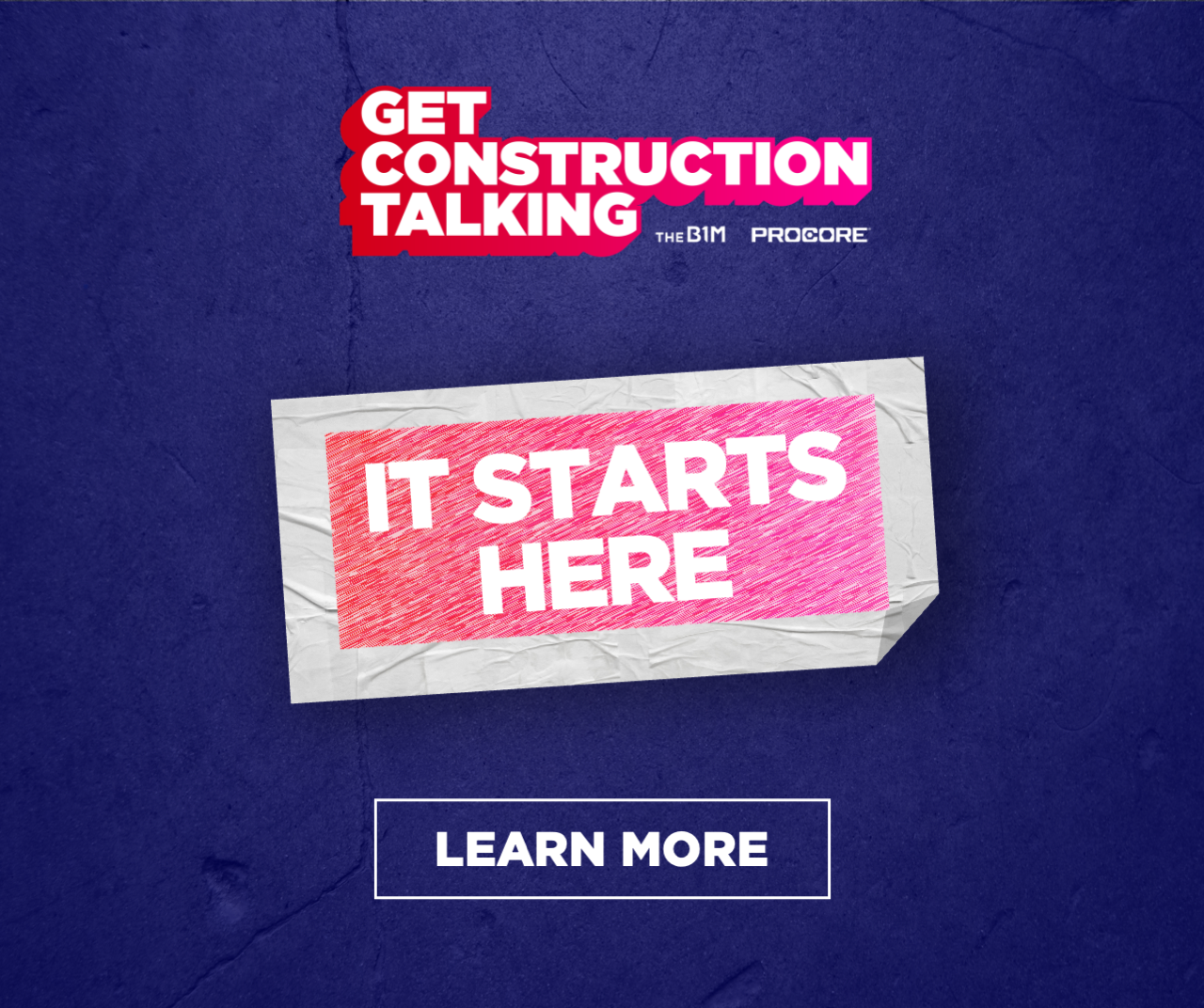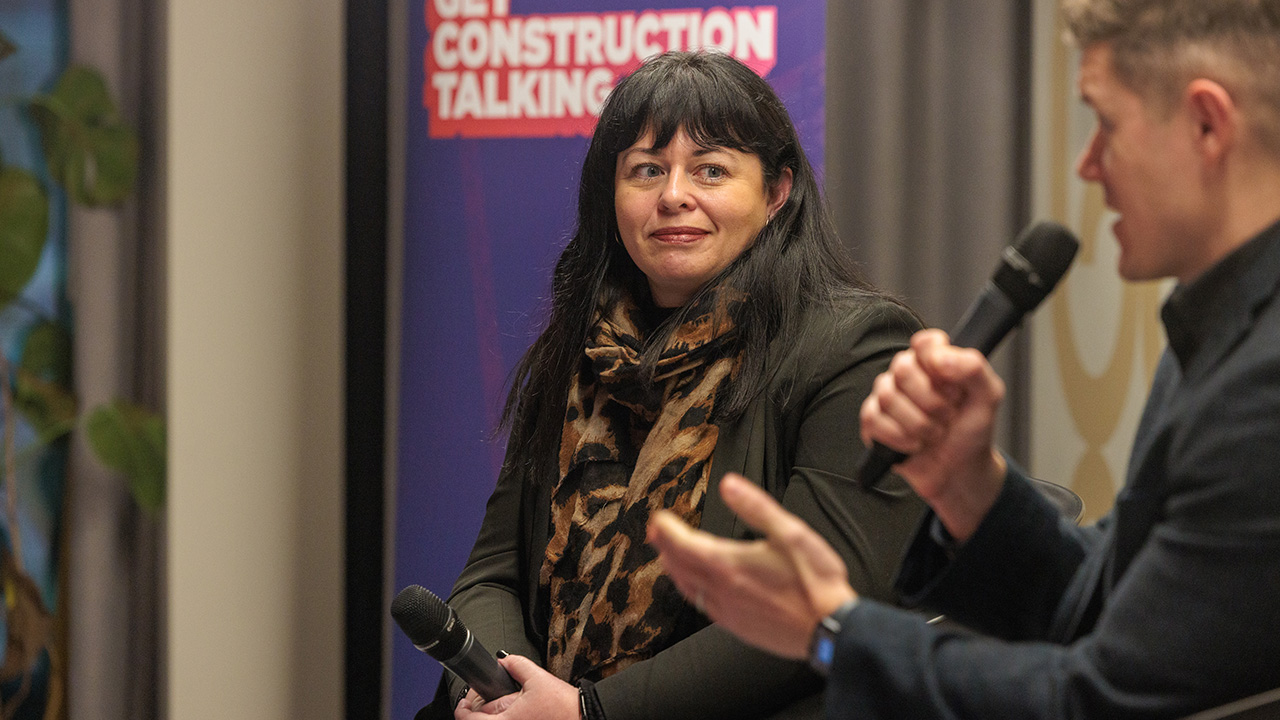
Construction is Uniting to Tackle Its Mental Health Crisis
CONSTRUCTION has a problem it can’t ignore.
In the UK, the industry struggles with poor mental health more than any other sector. At its most extreme, the issue is costing lives: pre-pandemic data shows that two people die by suicide everyday on average in the UK construction industry.
That statistic is sadly repeated in Australia, while people working in the US construction sector are five times more likely to die by suicide than they are in other professions.
To kick off the new year, we hosted a free event in London to raise awareness of mental health in construction, break the stigma around this issue and explore ways that we can work together as an industry to improve mental wellbeing for all.
It’s the latest event from our global Get Construction Talking initiative, established by The B1M and Procore. We're using our combined reach and influence to raise awareness, get millions talking and to lift-up charities working in this space, raising $1M for them in the process.
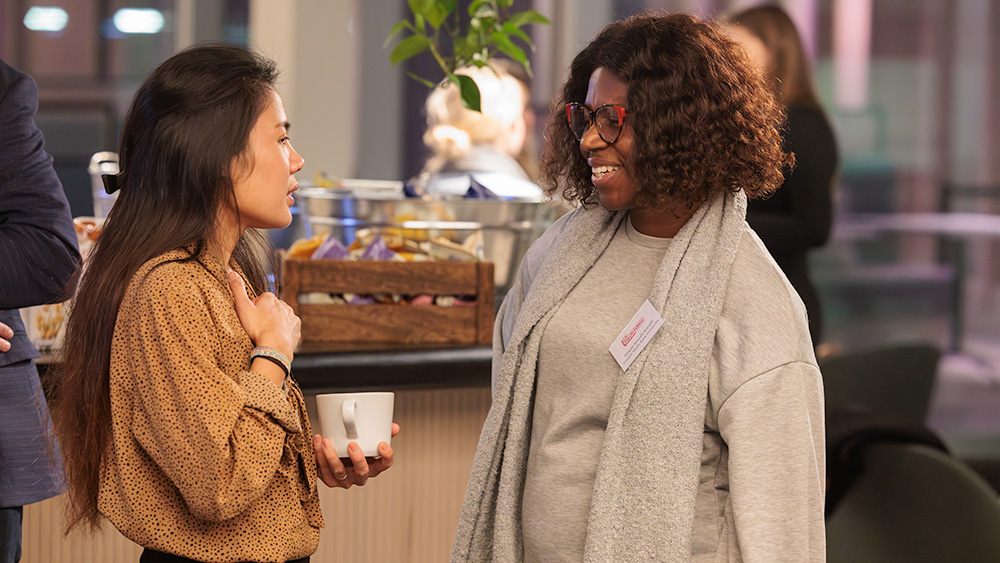
Above and Below: The Get Construction Talking event in London. Images by Photographer London.

The session on 23 January brought together a diverse audience of mental health professionals, contractors and specialists from across the industry for an open discussion.
Research has shown that our mental health can come under additional strain around New Year and the month of January, but we chose this particular dark, damp night to positively explore how we can tackle poor mental health head on in 2024.
The evening kicked off with The B1M’s founder Fred Mills sharing some of his personal mental health journey. “I’m somebody who’s struggled with their mental health – and in particular depression – in recent years. When you look at my life on paper that might sound strange and it didn’t make much sense to me either. I came to realise that this can affect anyone: it’s not a conscious choice, it’s a sickness.”
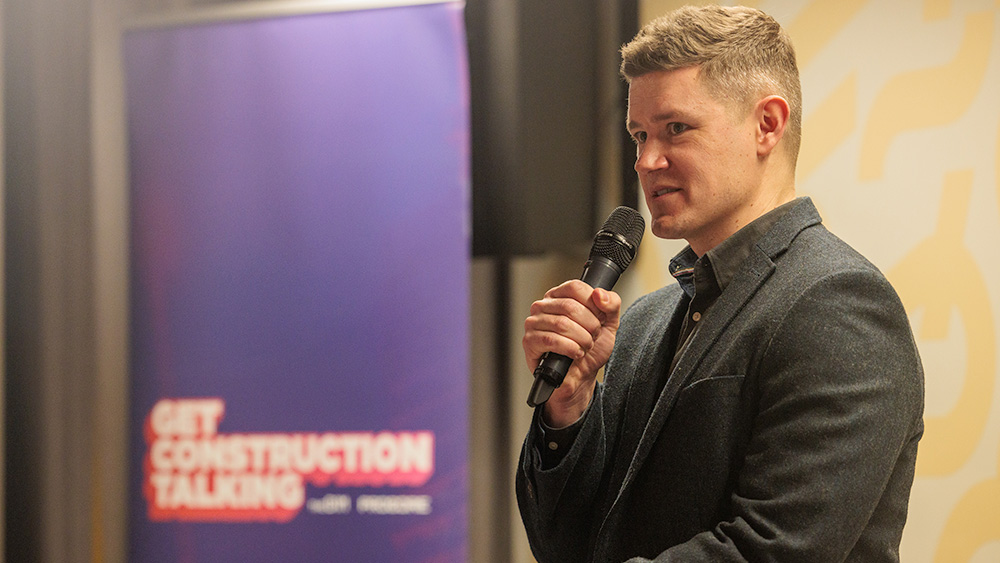
Above: The B1M's founder Fred Mills introducing the Get Construction Talking event in London. Image by Photographer London.
Fred then welcomed Sarah Bolton, chief operating officer of Lighthouse, a charity partnered with Get Construction Talking which provides support for those in the industry. Sarah kicked off the discussion by explaining what we mean when we talk about mental health.
“What we need to remember is we all have mental health, which can be good or bad.” It's poor mental health that the construction industry is grappling with and as Bolton noted, “there are many reasons for it, it doesn't discriminate”.
Mills and Bolton then discussed why those working in the construction sector seemingly face a heightened risk when it comes to poor mental health.
The unique pressures and challenges of the industry can act as aggravating factors – everything from payment practices and the “feast or famine” nature of subcontracted work, to working hours and a culture of putting a brave face on mental health challenges; avoiding opening up for fear of appearing weak or unreliable.
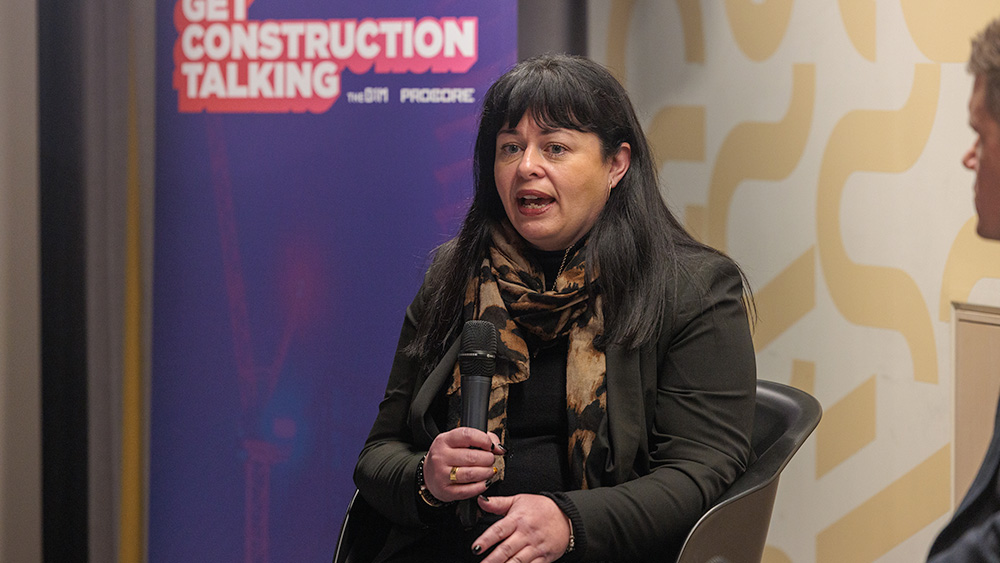
Above: Sarah Bolton, chief operating officer of Lighthouse, joined Fred Mills onstage. Image by Photographer London.
Mills asked whether the male-dominated nature of construction might play a factor, as men typically choose to carry the burden of silence over speaking up about their feelings.
Fortunately, this is an area in which Bolton has seen improvement. “Five years ago I would have said yes. But the work I'm seeing now … we’ve had 30,000 conversations in just over a year, so that is a massive improvement.”
Many tier one contractors display offers of access to resources such as mental health first aiders or charity helplines which can be used, but this isn’t always effectively communicated to everyone on site.
Bolton recalled a familiar scenario, “I've spoken to people before and said ‘there's a poster up there, would you ring that number?’” but this is often met with a response such as “‘Oh that's not for me, I'm not directly employed by whomever.’" A simple way to solve this is to effectively communicate that such resources are available to everybody working on site, not just tier one contractors.
Cultural changes can take years, but Bolton and Mills both agreed that the new generation of industry talent can help to usher this in. Younger people often have greater expectations of mental health provision, which provides an opportunity to adopt new working practices and provide reassurance.
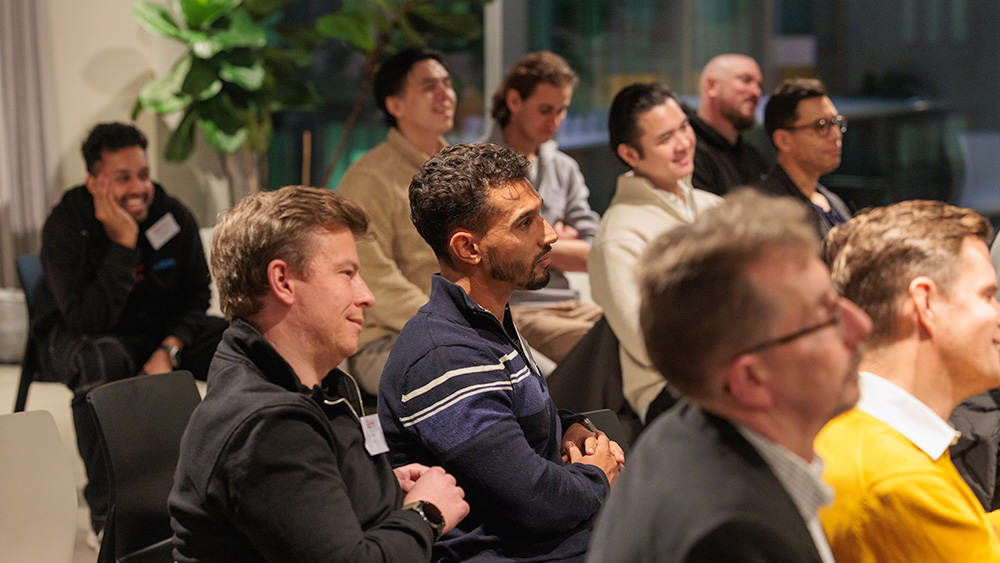
Above: Attendees from across the industry joined an open discussion. Image by Photographer London.
"For people entering we can say, look this is a good environment to come into this is a good industry to start your career in and we will look after you,” Bolton said.
The panel discussion was followed by an open audience Q&A that saw people from across the industry share their experiences and explore ways to help tackle the sector’s mental health crisis. Ideas ranged from structural changes such as new legislation, to direct best practice, team bonding and working to create “social safety nets” for workers.
Even simple steps like adding mental health considerations into your method statements and risk assessments, including it in site inductions and adding the topic onto meeting agendas can all help to move the issue of mental health from a stigmatised after-thought into a normalised conversation and long-term behavioural change.
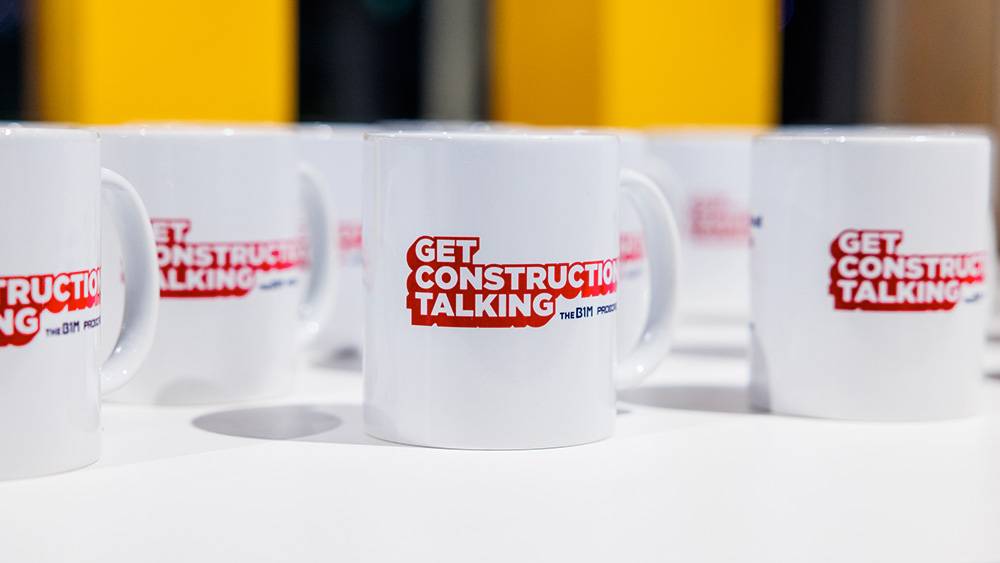
Above: Attendees were given a free mug to help start a conversation in their workplace. Image by Photographer London.
Mills pointed out that mental health and business success are not exclusive. Well-balanced teams where both mental and physical safety are prioritised are less likely to run into errors and rework, and more likely to deliver effectively. Leading by example within areas that businesses have under their control is a powerful way to initiate wider industry change.
The ultimate goal is to get much deeper than mental-health first aiders and site posters and to a culture where mental health is thought about and addressed as instinctively as physical safety.
Of course, one of the most simple things that we can all start doing today is talking.
If we can all become more aware of mental health, look to spot the signs in our colleagues and work mates that something might not be right and point them in the direction of support, then we can collectively start to move the dial on this issue at a grassroots level.
Having those closest to us at work aware of the risks and watching our backs would be invaluable, and that’s what Get Construction Talking is all about.
It uses the unique power and global reach of both The B1M and Procore to raise the profile of mental health and help millions understand how they can start to help tackle this issue today, for free.
Get Construction Talking is supported by leading construction mental health charities across the US, UK, Australia and New Zealand, including the Construction Industry Alliance for Suicide Prevention (CIASP), Mates in Mind, Lighthouse, MATES in Construction and Construction Sport.
You can learn more, get support, download our free toolkit or make a donation to support these charities over at getconstructiontalking.org.





